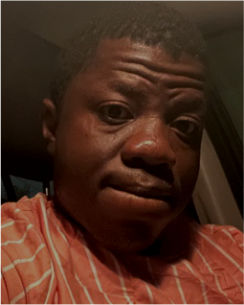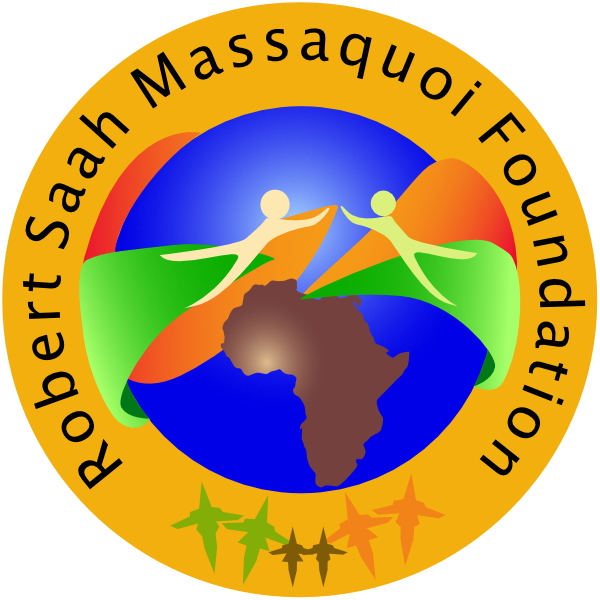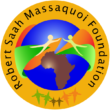
The soldiers attacked our town in Foya district, a small village in the northern part of Liberia in West Africa, in the year 2000. This was a peaceful town, and most of the people of the Foya district were friendly farmers. My friends and I would play while adults sat nearby telling stories about their ancestors. On the night of April 4, our village and families were torn apart forever. The soldiers immediately started shooting their guns, and everyone ran away for safety. Some fell on the ground, others wept for their loved ones. A river of blood soon flowed through the streets. My mother and dad argued about where we could go to get away long into the night.
ROBERT – (a suggestion you might want to consider here) if you have any pictures of your home, your father, your mother you as a boy – and another photo of yourself today – it might be good to include this here.
Eventually, my parents took us into the bushes to hide, but we were confronted by soldiers as we entered. These armed men knew my father and mother well; some of them were my father’s students. They realized that my father was a school principal and thought he had money from the school, but my father didn’t. The soldiers’ leader asked my father to sit on the ground. They gave him two choices: his life or money. My father reminded them that life was more important than money, and he didn’t have any money. Before I could look at their commander, I saw my father’s left hand chopped off. He fell to the ground crying. The commander then tried to slash my mother and sister, but suddenly, he stopped.
The leader asked my little sister, who was just ten years old, to take her clothes off. My sister asked him, “Why should I take off my clothes, sir?” The soldiers’ leader turned around and replied slowly, “Because I’m going to rape you!” My father cried to the leader to take his life instead and leave his family alone. The leader laughed and said that this day was the happiest day of his life! That he could do anything to anyone. A few hours later, the leader passed the order to kill my father. I quickly stood up and asked, “Why are you people doing this to my family?” He replied, “Because your father refused to give me the money.” I pleaded that my father didn’t have money. The leader said, “If any of you open your mouths and says anything, you will join your father.” The soldiers punched my father with their fists and beat him with their guns. My family helplessly watched our father dying before us. Minutes later, the leader still wanted to rape my little sister before our eyes. At that moment, I felt like joining my father.
There was nothing I could do but hold my sadness inside. As a 12-year-old child, I could do nothing to save my lovely family. Because I was told not to cry or say anything, I endured these painful moments alone. Looking at my father’s body lying down on the ground with blood flowing everywhere, I couldn’t stand it. I looked around. My sister could barely walk straight. My mother was still on the ground and didn’t know about what happened to her husband and her fourteen-year-old daughter. My brother then took my mother on his back, and my older brother carried my little sister on his back. As I was leaving, I looked down at my father’s dying body on the ground. I realized life would be tough without him. In my helplessness, the only thing I could offer my father was a final goodbye.
That moment reminded me of a Shakespeare quote my father used to read to me: “Everyone can master grief, but he that has it.” Hours later, we started walking towards the Sierra Leone border, and we saw a lot of dying bodies on the ground. I saw people without hands or legs. From that moment, I asked myself: “God, where are you?” As we got to the Sierra Leone border, their government refused to let us enter their country. We stayed at the border for two weeks, where people were dying of hunger, and others were passing because no one supplied treatment for their wounds. On June 10, 2001, the United Nations High Commissioner for Refugees spokesman came to the border and proclaimed that the government of Sierra Leone was now allowing refugees into their country.
Our extended stay in the refugee camps in Sierra Leone was very hard. People starved, there was no medication for sick people, and depression existed everywhere. Refugees became ill with a disease called Lassa fever; people died every day. My mother also got Lassa fever and was taken to a hospital. My family and I had to stay in the camp and weren’t allowed to go with my mother. My little sister and I were very sad and frightened as we depended on so much from my mother; all we could do was pray that God would save our mother and keep us safe.
On August 12, 2002, our prayers were answered. My mother was discharged from the hospital and was taken back to the camp. In 2003, the war ended in my country. Many people returned home, but some refused to go back to Liberia because of what happened to their families. Spokesman Daniel Samuel asked us, “Why don’t you go back to your country?” My mother replied to him, “Because of what happened to our loved ones and the lives that we lost.” Mr. Samuel told us he’d investigate our claims and my father’s death.
In 2008, my family and I finally received some good news. We were going to the United States of America. I was so overjoyed because of this opportunity for a new life. When we came to the US, I wanted to complete my father’s dream and attend school. I enrolled at Diego Hills School in San Diego, California, and then attended Mesa College. My father made sure that all his children went to school. He frequently said that Education was the key to success and made sure that we took our Education seriously. My father often quoted Benjamin Franklin’s saying that “Education is something you receive when your father sends you to college. But it isn’t complete until you send your son there.” Today I live through my father’s dreams and words.

